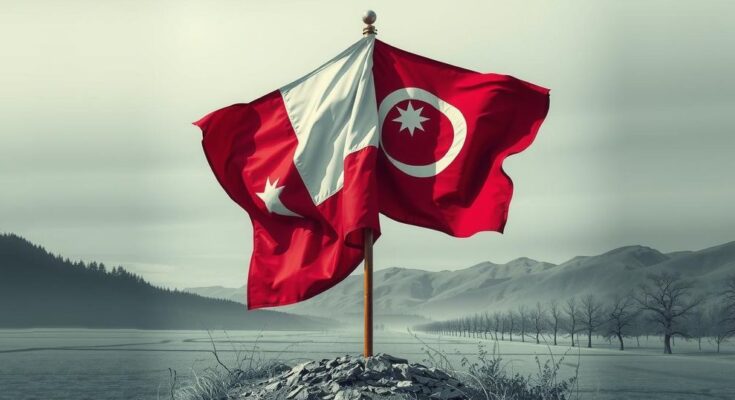Sudan has condemned Kenya’s support for rival paramilitary groups seeking to create an alternative government, labeling the behavior as irresponsible and a threat to regional security. The Sudanese government is escalating measures against Kenya, including possible sanctions and diplomatic withdrawals, in response to the recent signing of a charter facilitating a new government in rebel-held areas. The conflict has resulted in severe humanitarian crises, exacerbating an already fragile situation.
On Monday, Sudan condemned Kenya’s support for rival factions attempting to form an alternative government, labeling it as “irresponsible and hostile.” Sudan’s army-aligned administration, under the leadership of army chief Abdel Fattah al-Burhan, expressed concerns over the stability of the region as tensions escalated between factions since the outbreak of conflict in April 2023.
The Rapid Support Forces (RSF) and a collection of political and armed groups recently signed a charter in Nairobi aimed at establishing a “peace and unity” government. Kenya’s foreign minister subsequently described this potential new administration as a means to restore “democratic governance” in Sudan, prompting significant backlash from Khartoum, which denounced this initiative as a severe threat to regional security.
Sudan’s foreign ministry characterized Kenya’s actions as a dangerous precedent, and announced plans to implement countermeasures, including escalating economic sanctions and withdrawing its ambassador from Nairobi. Foreign ministry undersecretary Hussein Al-Amin Al-Fadil indicated that Sudan is actively pursuing these measures amid rising tensions.
Additionally, the charter signatories include factions from the Sudan People’s Liberation Movement-North, which retains influence in parts of South Kordofan and Blue Nile. The UN has cautioned that this development could worsen the fragmentation of Sudan, which is already grappling with devastating war-related consequences.
In contrast, Kenyan Foreign Minister Musalia Mudavadi referred to the charter signing as a “peace agreement,” emphasizing its potential to foster unity and stability in Sudan. Khartoum, however, accused Nairobi of providing support to the RSF and functionally prolonging the conflict, given ongoing allegations of arms supply involving the United Arab Emirates.
As the conflict in Sudan continues to escalate, resulting in numerous civilian casualties and humanitarian crises, both parties involved face mounting international scrutiny and sanctions for their actions amidst allegations of severe human rights abuses. The situation remains precarious as Sudan navigates its intricate political landscape in light of foreign involvement.
In summary, Sudan has vehemently criticized Kenya’s backing of rival factions aiming to establish an alternate government, claiming such support poses significant threats to regional stability. Sudan is poised to respond with economic sanctions and diplomatic measures in light of these developments. Despite Kenya’s assertions advocating for peace, the situation remains complex as the conflict deepens, and potential humanitarian ramifications loom larger.
Original Source: www.hindustantimes.com




